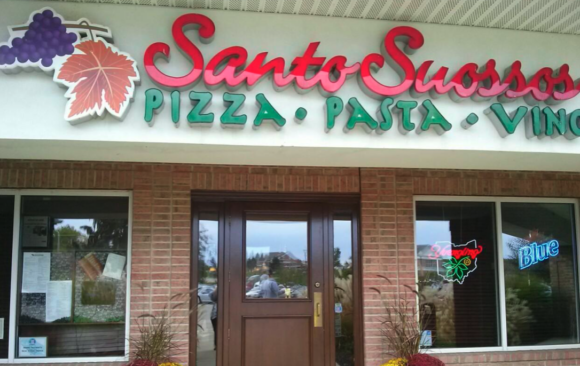A third federal appellate court has ruled against a policyholder seeking business-interruption coverage for income lost because of the coronavirus pandemic.
A panel of the 6th Circuit Court of Appeals, in a published decision released Wednesday, affirmed a district court decision that found government orders that forced a restaurant to close its dining room did not cause direct physical damage or loss to the property.
“The restaurant has not been tangibly destroyed, whether in part or in full,” the panel said in an opinion written by Chief Judge Jeffrey S. Sutton. “And the owner has not been tangibly or concretely deprived of any of it. It still owns the restaurant and everything inside the space. And it can still put every square foot of the premises to use, even if not for in-person dining use.”
The decision did not address whether the presence of SARS-CoV-2 on a property could cause a direct physical damage or loss, leaving that question for another day. Many businesses that purchased policies with no virus exclusions are arguing that virus particles remain suspended in air and cling to surfaces, which made their properties unusable for a time.
A panel of the 8th Circuit Court of Appeals on July 2 affirmed a ruling that government orders that limited the number of patients who can receive care at a dental surgery practice did not create a direct physical loss that was covered by a commercial property insurance policy. A panel of the 11th Circuit Court of Appeals ruled that the virus particles themselves cannot create a covered loss.
Indianapolis attorney Christopher E. Kozak, who filed an amicus brief on behalf of United Policyholders in the 6th Circuit case, said the 11th Circuit did not hold oral arguments and issued a brief unpublished decision. “It looked like they didn’t take it seriously,” he said.
Kozak who is with Plews, Shadley, Racher & Braun, said the decision should have little impact on other proceedings.
Kozak said he was disappointed by the 6th Circuit’s decision. He said a jury, not judges, should decide whether the virus causes physical loss or damage.
“The question of whether a loss occurred is almost a quintessential fact question,” he told the Claims Journal.
Santo’s Italian Cafe, which does business as SantoSuossos Pizza Pasta Vino in Medina, Ohio, was forced to close its doors to in-person dining in March 2020 because of state emergency public health orders. The restaurant filed suit after Acuity Insurance Co. denied its business-interruption claim.
The 6th Circuit panel said the policy included a virus exclusion and an ordinance and law exclusion, both which seem to bar coverage for a shutdown caused by the coronavirus pandemic. But the court said that it does not have to decide whether the exclusions apply because the “North Star’ in its analysis is whether there was direct physical damage or loss of property.
The opinion says Acuity had promised to pay for lost business income only during the “period of restoration,” which begins 24 hours after the loss and ends once the building is repaired, rebuilt or replaced.
“There is nothing to repair, rebuild, or replace that would allow the resumption of in-person dining operations,” the opinion says. “What the restaurant needed was an end to the ban on in-person dining, not the repair, rebuilding, or replacement of any of its property.”
Hartford, Conn. attorney Wystan Michael Ackerman, who wrote an amicus brief in the case on behalf of the American Property and Casualty Insurance Association, said the 6th Circuit restated in its opinion the insurance industry’s central argument against COVID-related business-interruption claims: The virus harms people, not property.
Ackerman, who is with Robinson & Cole, said most of the lawsuits that have been filed so far allege that coverage is owed because of government orders. He said lawsuits that allege the virus was physically present on a property are in the minority.
The Ohio Supreme Court may soon rule on the question that was wasn’t answered in the Santos Italian Cafe case, whether the virus itself can cause a covered physical loss. Ackerman said the court in April accepted a certified question from U.S. Northern District of Ohio that addresses exactly that point.
The Supreme Court’s docket for the case, Neuro-Communication Services Inc., etc., v. The Cincinnati Insurance Co., shows that the APCIA, Ohio Insurance Institute, State Auto Mutual Insurance Co. Nationwide Mutual Insurance Co., United Policyholders, Restaurant Law Center, Francois Inc, and Queens Tower Restaurant have filed amicus briefs.
About the photo: The exterior of SantosSuossos Pizza Pasta Vino is shown. Photo courtesy of TripAdvisor.com.
Was this article valuable?
Here are more articles you may enjoy.


 Judge Upholds $243M Verdict Against Tesla Over Fatal Autopilot Crash
Judge Upholds $243M Verdict Against Tesla Over Fatal Autopilot Crash  Building Fortification And The Role of The Insurance Industry
Building Fortification And The Role of The Insurance Industry  Tesla’s Austin Robotaxis Report 14 Crashes in First Eight Months
Tesla’s Austin Robotaxis Report 14 Crashes in First Eight Months  NYC Travel Snarled by Snow as Central Park Gets 15 Inches
NYC Travel Snarled by Snow as Central Park Gets 15 Inches 